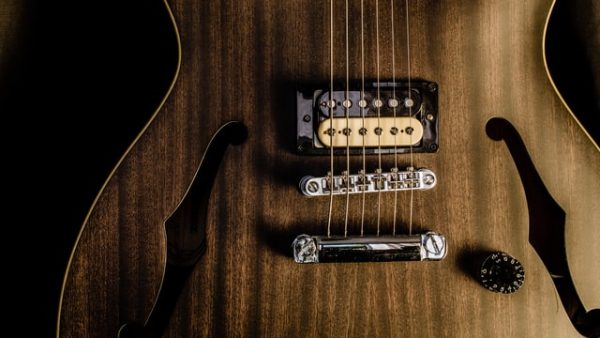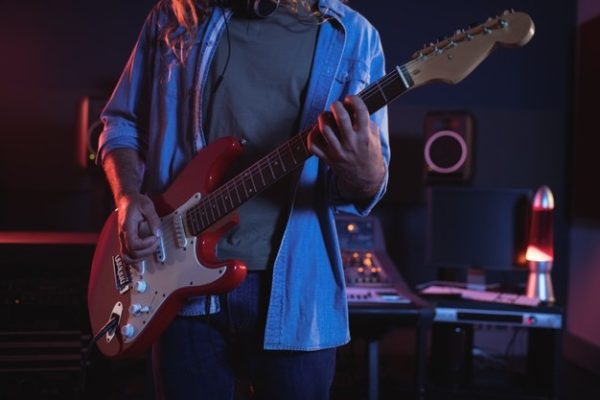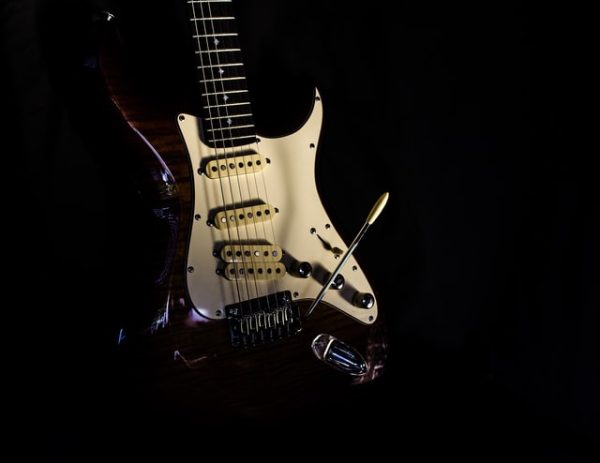The blues guitar is somewhat different from the rock guitar. This primarily concerns the tuning of the instrument, the choice of the caliber of the strings, and the pickups used. Here are some considerations that will not only help you tune your instrument, but may also influence your choice when buying a new guitar.

Tuning the guitar
Most blues musicians prefer to play the strings higher than their rock counterparts. Due to this, a more powerful and brighter sound is achieved: high-standing strings vibrate with a wider amplitude (less beating of the strings at the fret), although it becomes more difficult to play. Keep in mind that the higher you lift the strings, the more you need to tighten the truss rod, straightening the neck. In general, the process of adjusting the instrument is quite a chore, so the best thing you can do is contact a guitar master, he will tune the instrument and show you how to do it.
String gauge
The most commonly used strings are thick: no thinner than a 10-46 gauge. They give a more powerful sound, but, accordingly, it is harder to pull the bends on them and you need to more energetically extract the sound with a pick (features of sound production). Some guitarists, like Steve Ray Vaughan, played extra-thick strings (13-58, and sometimes even fatter!) And achieved a fantastically aggressive sound.

If you are new or young and your hands are not yet ready for objective reasons, do not put too thick a set and do not raise the strings high above the neck. What suits a hefty 35-year-old lumpy man leading a “correct” lifestyle is unlikely to suit an intelligent young man who recently graduated from high school (don’t worry, playing the blues, you will quickly turn into an imaginary counterpart!).
Try the combo kit first, for example, 9-46 – it will be easy to make bends and still be able to play rhythm with more attack and drive.
When changing a set of strings to a thicker one, be prepared for the fact that the slots in the nut will widen, and when you return to the old set after a while, thinner strings may “crawl” in the nut.
Pickups
These are mainly passive pickups with Alnico 5 and Alnico 2 magnets, giving a warmer and more natural sound than ceramic pickups.

Scale length
Scale (the working distance of the string from the nut to the bridge) is of two sizes: short – 628 mm. and long – 648 mm. The sound of the instrument also depends on the scale. So the softer sound of Gibson Les Paul, in addition to wood and pickups, is also achieved due to a small scale and less strong tension on the strings. Large-scale guitars (Fender) sound brighter, but they are harder to pull the bends and require wider finger stretching (for example, when playing a standard F shuffle in the position I).
Fret size
Blues guitars usually use medium and thick frets – they have a “fat” sound, and the strings are easier to pull.
Bridge
As a rule, the maximum is a Strat tremolo.

What to consider before playing?
Good sound is not only achieved with good equipment. Often, the play gets better from crumpled hands.
To get ready to play the instrument as quickly as possible and not to cause pain or discomfort after 10-20 minutes of playing, it is worth doing a few simple exercises.
The first exercise is done without a guitar. It is called a hand massage. Ideally, massage your arm to the shoulder. After doing it, you should feel warmth in your entire hand.
Next, you should pick up the guitar and play first on one string, and then on all. The most important thing is to use 4 fingers of the left hand and the optimal tempo for you. The challenge is to warm up your fingers, not to develop a faster speed.
If you are preparing for a concert, we advise you to entrust your body warming up to professionals, such as in the salons of massage in Dubai. So you will not only warm up your hands, but also completely relax and you will not be afraid of going on stage.
Wrapping up
To conclude the topic, we can say the following: if you play rock but want to master the blues guitar, in addition to adding new colors to your playing, then the most correct thing is to go broke for one more instrument. If the financial possibilities do not allow this, do not despair, after all, all of the above concerns, first of all, the search for sound, and you can master the technique and develop musical thinking on any guitar.





